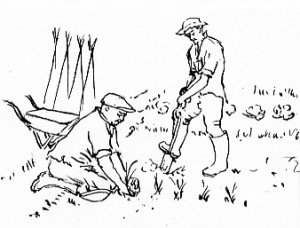What are the symptoms?
 Unfortunately prostate cancer in its early and most curable stages often has no symptoms. Most men with early stage prostate cancer do not have urinary symptoms and most men with urinary symptoms do not have this cancer. See a specialist nurse explain here.
Unfortunately prostate cancer in its early and most curable stages often has no symptoms. Most men with early stage prostate cancer do not have urinary symptoms and most men with urinary symptoms do not have this cancer. See a specialist nurse explain here.
Many men ignore symptoms, hoping they will go away, but this is dangerous. If the cancer is caught before it grows outside the gland, it is much more likely to be treated successfully. The disease is incurable when diagnosed at a late stage although its progress can be managed. Unfortunately a third of all prostate cancers are diagnosed only when it has already spread to other sites, including bones.
If you have symptoms or side effects from prostate cancer, prostatitis or their treatments, Prostate Cancer UK have guides that will help you take control. See
It is vital to report persistent symptoms as soon as possible.
It is possible to ask your GP for a simple blood test for prostate specific antigen (PSA) that gives an indication of the likelihood of the presence of cancer. We recommend that all men over 50 should ask their GP for a test at regular intervals – and they are entitled to an annual check under the NHS rules. Men with a father or brother who has had prostate cancer are at least twice as likely to contract the disease, and so should be tested from age 40. It is particularly important that they should be tested regularly.
Also Afro-Caribbean men have a three-fold higher risk of getting prostate cancer than those of European origin. But, despite this, they are less willing to be tested. It is particularly important these men should be tested regularly and preferably from 40.
NEVER ignore persistent symptoms however trivial they may seem.
Symptoms commonly include:
Inability to urinate, or difficulty starting or stopping the urine flow
The need to urinate frequently, especially at night
Weak or interrupted flow of urine
Pain or burning during urination
Difficulty having an erection
Blood in the urine or semen
Frequent pain in the lower back, hips, or upper thighs
These symptoms can have other causes though. For example, Benign prostatic hyperplasia (BPH) is a frequent cause in older men of urinary problems. This non-cancerous condition enlarges the prostate, squeezing the urethra.